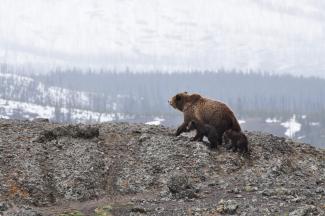Tribal Energy Project Development

The Tribal Energy Project, a U.S. Department of Energy (DOE) program, aims to advance renewable energy sufficiency on tribal lands through government assistance. This assistance is three-pronged, providing financial support, technical and legal assistance, and tribal education and training on renewable energies. The goal is to improve tribal economies by using land to create more sustainable energy pathways that bolster the tribal community and create jobs within tribal nations.








